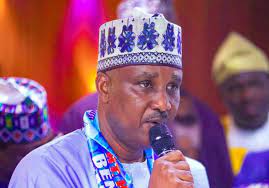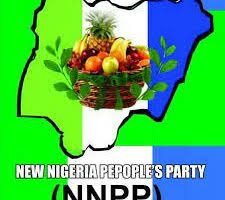There had been efforts by successive administrations to develop an economically viable inland waterways for Nigeria, but without significant progress. Joshua Egbodo writes on observed hindrances to the success of the project.
Cartel against River Niger dredging
From repeated allegations of fraud in attempts at dredging the River Niger to pave way for seamless inland water ways in the country, to the most recent exposé by Speaker of the House of Representatives, Hon. Yakubu Dogara, that a high level cartel with vested interest against its success, have ensured there is no meaningful headway had been made.
Dogara, while playing host to Managing Director of the National Inland Waterways Authority (NIWA), Senator Olurunnimbe Mamora on a courtesy visit explained that efforts by successive administrations to implement the national transportation master plan, which he said will see to the dredging of Nigeria’s inland water ways, could not be achieved because some powerful interests are opposed to it.
The Speaker, who noted that he was a member of the team which designed the original national transportation master plan, disclosed further that in the last three years, he had taken up the issue of implementation of the plan at different times and at the highest levels with different people but his efforts had repeatedly hit the brick walls.
Dogara in the no-bounds revelation told the MD that at some points, he was briefed to the effect that the Chinese handed down a negative verdict on the project, describing it as not feasible, as well as useless for Nigeria.
According to him, the transport master plan was initially conceived by the former President Olusegun Obasanjo’s administration. “I was part of the development of the national transportation master plan, I don’t know what has happened to that, but how I wish we had implemented that plan, by now we would have gone very far because the national transportation master plan vision is a seamless integration of a multi modal transportation into one hub.
“I think at that time Baro in Niger State had been identified as the center for the hub, it is (to be) serviced by a railway that is connected to Minna and all you need to do is to construct a road and airport that will ensure connectivity and you will have access to the Atlantic Ocean through the River Niger, so everything was supposed to be put together in one place.
Enemies within
“I am aware that some people in the sector are of the opinion that we do not need the inland waterways transportation in this country. I have had discussions with some of them, like I said I have been advocate of this for long, and they said that the Chinese said it is useless, even if we develop it.
“But that’s the irony, if you look at other countries who do not even have this potential for inland waterways transportation, they have even done man-made inland waterways and even lakes, they have created artificial ones. While in this country, having been blessed with this wonderful resources by Mother Nature by God we tend to look the other way and believe they will not serve any useful purpose”, Dogara told Senator Mamora.
This has, however, raised the question of how Nigeria handles some of its projects and programmes, without recourse to internal experts’ inputs on whether those it is getting from supposed foreign partners are with good intents, or well packaged Greek’s gifts.
Dogara explained further that “There are some people within the sector who do not want some of these initiatives to see the light of day. But because I’ve converted myself so if they are fighting against you, they are fighting against me, and it would be very difficult for them to succeed because of the good will that propels us,” the Speaker further assured the NIWA delegation.
Benefits aplenty
He also highlighted some of the benefits derivable from inland waterways transportation saying, “imagine the millions of metric tonnes of goods that would be lifted off our highways and put on the berth of ships that would ply these inland waterways. That would mean our roads can last 50 years as it is in other climes. That would also translate into safety on our highways as well”.
He said it was for the sole importance of the sector that the House of Representatives passed the NIWA amendment Bill, repealing the extant moribund laws governing the agency’s activities to enable it achieve its intended mandate. The Bill is currently awaiting the Senate’s concurrence.
Alternative transportation system
Senator Mamora had on the visit, commended Dogara for all his efforts on the reforms effort in inland water ways transportation sector, explaining that he was on the visit to solicit the Speaker’s support, and that of the House, on the note that it is the legislature that provides the ways and means for good governance, especially with passage of the amendment to the Authority’s establishment Bill.
The frequent collapse of the nation’s road transportation system has been repeatedly blamed on the absence of alternatives, like reliable rail networks and inland water ways by experts, who said the development has contributed to the mounting of undue pressure on the roads.
Though Dogara’s assertion over the alleged sabotage may not have been the first of its kinds, and also not limited to the transportation sector of the country’s economy, many have argued that this should be taken as a serious lead by the ruling government to sanitize the system, especially if the most avoidable carnages and loss of precious lives of the citizens on the roads can be brought to the needed minimal.
The question begging for an answer in the opinion of analysts therefore is; why would the Chinese be the ones to decide for us what we need? They said it is time for government of the day to revisit the plan.



